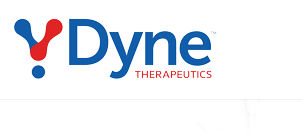Dyne shares jump on trial data for muscle disease drugs
20 May 2024
Clinical ResultAccelerated ApprovalOligonucleotide
Dive Brief:
Dyne Therapeutics is pressing forward with plans to pursue accelerated approval for two experimental drugs it’s developing for different forms of muscular dystrophy, revealing Monday updated clinical trial data for both that it said shows “meaningful” benefits.
Study results for the first treatment, a drug for myotonic dystrophy Type 1 called DYNE-101, showed treatment helped modestly improve myotonia, or the delayed uncoiling of muscles after a voluntary contraction. Dyne describes changes on this symptom as an “early indicator” of functional improvement.
Dyne is testing the second drug, DYNE-251, in certain people with Duchenne muscular dystrophy. New data from six study participants showed increased production of a muscle-protecting protein that’s deficient in people with the disease — to levels Wall Street analysts noted were competitive with an approved therapy.
Dive Insight:
There are no approved therapies for myotonic dystrophy Type 1, or DM1, although several other companies besides Dyne are studying potential medicines. Caused by mutations in the DMPK gene, the disease is associated with progressive muscle wasting and myotonia, as well as other symptoms in the heart, lungs and central nervous system.
DYNE-101 pairs a short strip of genetic material known as an antisense oligonucleotide with an antibody fragment that targets a protein expressed in muscle tissue. Once delivered to muscles, the drug is designed to reduce production of certain toxic RNA, thereby restoring normal processing of messenger RNA and protein translation.
Whether this reduction is, in fact, happening can be measured by looking at a biological process called ”protein splicing” and whether it's functioning correctly.
Dyne’s results show that treatment with DYNE-101 led to dose-dependent increases in the average splicing correction reported after three months. Study participants given the highest dose had a 27% mean splicing correction from baseline, as measured by a 22-gene panel. This is higher than the 20% to 25% splicing target that is thought to result in improved muscle function, according to a client note from Jefferies analyst Andrew Tsai.
Based on conversations with the Food and Drug Administration, Dyne eventually plans to target an accelerated approval for DYNE-101 using splicing as a surrogate biomarker.
The drug’s high dose appeared to be associated with the greatest improvement in myotonia, as measured by a video assessment of the time patients needed to uncurl their middle finger after gripping their hand. The data presented Monday for that group only extends out to three months, however.
Results on other muscle and function tests were less clearly positive, however. And while Dyne described most side effects as mild or moderate in severity, the company did report liver enzyme elevations in about one-fifth of participants. The elevations had no impact on liver function and are complicated to assess given the disease’s effect on those values, Dyne said.
Dyne also disclosed two cases of pulmonary embolism in participants, which were judged by investigators as serious, but unrelated to the study drug.
Data from Dyne’s Duchenne drug were from fewer patients, but showed increases in dystrophin production greater than what was observed in testing of Sarepta Therapeutics’ approved therapy Exondys 51. Like that drug, Dyne’s is designed for the roughly 13% of Duchenne patients who are treatable with drugs designed to induce “skipping” of exon 51 in the translation of the dystrophin protein.
In Duchenne, Dyne said it has confirmed with the FDA that dystrophin can be used as a surrogate biomarker for accelerated approval. The company plans to engage with regulators and provide an update on the “path to registration” for both drugs by the end of the year.
Leading Dyne through clinical development and future regulatory meetings is John Cox, the former head of Bioverativ who replaced Dyne’s former CEO Joshua Brumm in late March.
'
For more details,please visit the original website
The content of the article does not represent any opinions of Synapse and its affiliated companies. If there is any copyright infringement or error, please contact us, and we will deal with it within 24 hours.
Organizations
Targets
Hot reports
Get started for free today!
Accelerate Strategic R&D decision making with Synapse, PatSnap’s AI-powered Connected Innovation Intelligence Platform Built for Life Sciences Professionals.
Start your data trial now!
Synapse data is also accessible to external entities via APIs or data packages. Leverages most recent intelligence information, enabling fullest potential.





